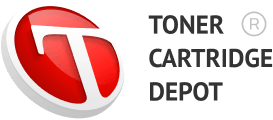
/
Introduction
- Overview: This section introduces the importance of managing printing costs for small and medium businesses (SMBs). It highlights printing expenses as a significant, often overlooked, part of the budget.
Assessing Printing Needs: SMB Printer Buying Guide
- Determining Printing Volume: This section discusses how to determine your business’s typical printing output, categorizing volume as low, medium, or high, to appropriately size printer capabilities and capacity.
- Low Volume: Details printing needs for businesses with less than 250 pages per month.
- Medium Volume: Discusses businesses that print between 250 and 2,500 pages per month.
- High Volume: Focuses on the printing needs of businesses that exceed 2,500 pages per month.
- Types of Printing Needs: This section outlines various common printing needs in an SMB, explaining how these needs impact printer selection and desired functionality.
- Documents: Explains the printing needs for basic black and white documents such as contracts and letters, suggesting basic laser printers as an appropriate tool for this use case.
- Presentations and Marketing Materials: Discusses printing needs for color documents like presentations and brochures, recommending a color inkjet or laser printer for this function.
- Photographs and Detailed Graphics: Describes printing needs for businesses requiring high-quality images, suggesting specialized photo printers may be necessary in these cases.
- Color vs. Black and White: This section compares color and black and white printing options and their costs, highlighting that color printers are more versatile but expensive to operate, while black and white printers are more economical for businesses that do not need color output.
Choosing the Right Type of Printer
- Inkjet vs. Laser Printer for Small Business: This section compares inkjet and laser printers, with inkjet printers best suited for high-quality images, while laser printers are better for large volumes and faster printing.
- Inkjet Printers: Explains how they work by spraying droplets of ink on paper, highlighting their strength in color printing. Also notes their relatively higher ink costs and slower print speeds in comparison to laser printers.
- Laser Printers: Explains how they use toner, which makes them ideal for large-volume, quick printing, and notes that cost per page is typically less than with inkjet printers.
- Exploring Other Types: This section discusses multifunction printers (MFPs) and mobile printers and their applications for SMBs.
- Multifunction Printers (MFPs): Describes MFPs and how they can consolidate printing, scanning, copying, and faxing for cost effectiveness and space savings in smaller offices.
- Mobile Printers: Discusses their practicality for businesses needing mobile printing capabilities with a wireless connection to laptops or smartphones for use in client locations.
Key Features to Consider
- Enhancing Connectivity and Convenience: This section outlines options for connecting printers with other devices to enhance usability and convenience.
- Wireless Printing: Discusses Wi-Fi capabilities in modern printers, allowing for flexible and versatile printing options from various points within an office setting.
- Network Printing: Details how larger businesses can benefit from a printer that can be connected to an established network, making printing easier from numerous computers and locations.
- Productivity Features: This section details hardware-based features that can improve productivity, time management, and reduce waste in the business.
- Duplex Printing: Explains how automatic duplexing features can reduce paper usage and cost by printing on both sides of a sheet.
- Automatic Document Feeders (ADF): Describes ADFs, which enhance productivity when copying and scanning documents by processing multiple pages in a single batch.
Cost Saving Strategies: Cost-Efficient Printing Solutions
- Efficient Ink and Toner Usage: This section provides advice on how to reduce costs by managing ink and toner use.
- Draft Mode: Recommends using draft mode to reduce ink/toner usage for internal documents.
- Print Preview: Highlights the importance of print preview to minimize print errors and wasted supplies.
- Alternative Supplies and Services: This section provides information on various cost saving opportunities related to supply sourcing and print management.
- Compatible Cartridges: Suggests using third-party ink and toner cartridges to save money over higher-cost name brand products.
- Managed Print Services: Describes the benefits of outsourcing printer management for greater efficiency and reduced costs.
Green Printing: Green Printing Solutions
- Eco-Friendly Printer Features: This section focuses on how to reduce printing’s environmental impact and potentially save costs.
- Eco-Friendly Printer Features: Details some printer energy-saving modes and the ability to work with recycled paper.
- Reducing Paper Usage: This section provides information on ways to reduce paper consumption through printer features and more conscious behaviors.
- Reducing Paper Usage: Suggests using duplex printing and digital document sharing to reduce overall paper use.
Maintenance and Durability: Printer Maintenance Tips for Small and Medium Businesses
- Maintaining your printer: This section details important maintenance steps that SMBs can take to keep printers in working order, and reduce unnecessary costs.
- Regular Cleaning: Discusses how regularly cleaning printers will prevent dust and debris buildup, improving print quality and avoiding the risk of paper jams.
- Firmware Updates: Outlines the importance of updating printer software to improve security and overall functionality.
Conclusion
- Summary: This section summarizes how SMBs can save money on printing by understanding their needs, making informed printer selections, and utilizing cost-saving strategies and tools. It also mentions Toner Cartridge Depot as a helpful supplier of compatible products, and highlights sustainability options as additional cost-saving measures.
